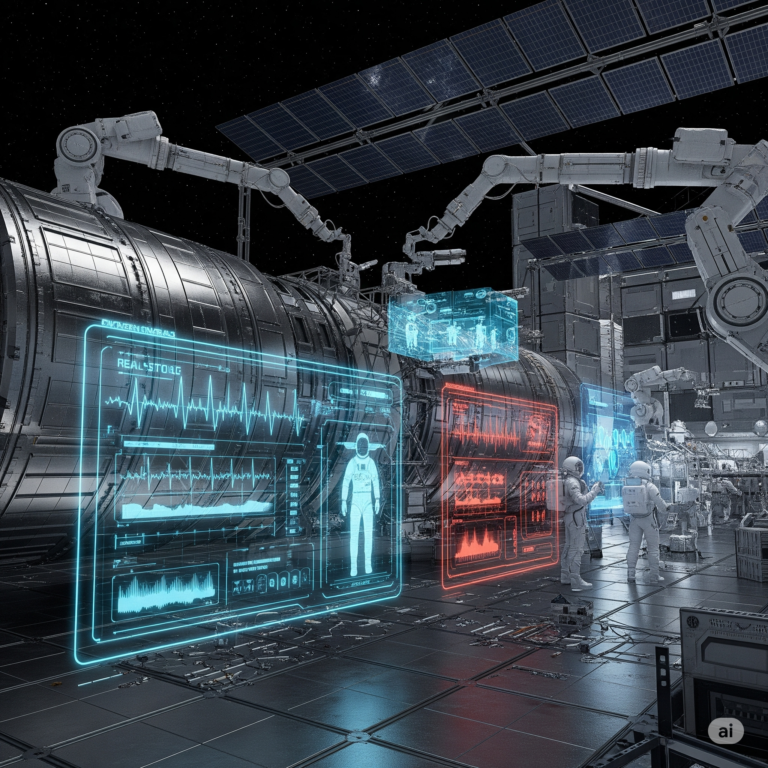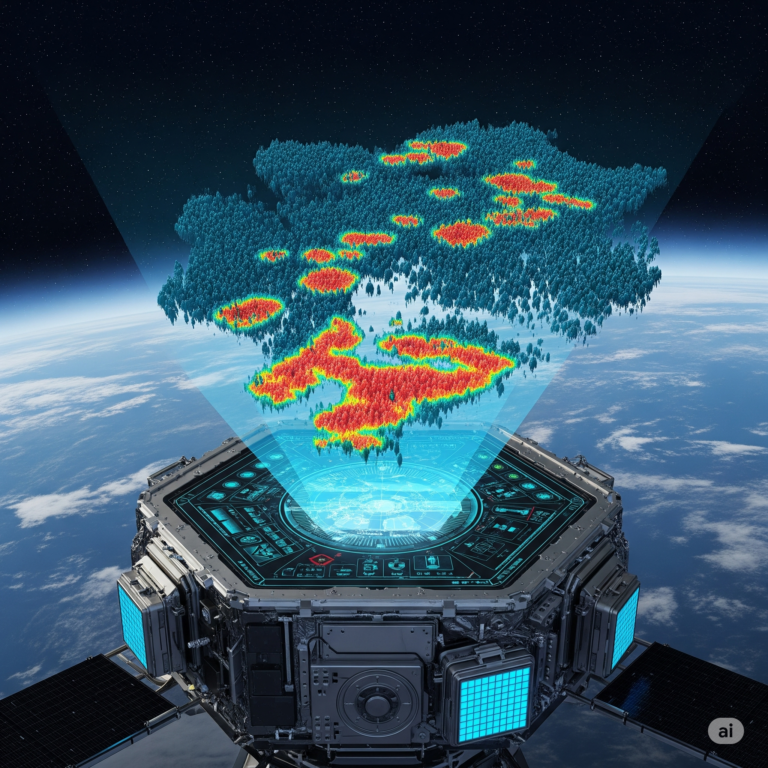Artificial Intelligence (AI) has rapidly shifted from a visionary idea to a powerful driver of change across today’s world. Yet, as it becomes deeply embedded in sectors like healthcare, finance, and governance, rising concerns around its fairness, transparency, energy consumption, and privacy breaches have raised red flags globally. Europe, often at the forefront of digital regulation, is taking a proactive stance. One shining example of this is the ACHILLES project, an ambitious initiative funded under the European Union’s Horizon Europe program.
ACHILLES—an acronym that mirrors the project’s mission to address AI’s vulnerabilities—seeks to develop human-centric machine learning (ML) technologies that are environmentally sustainable, transparent, and secure. With 16 partners across ten countries, ACHILLES is not just a project; it’s a blueprint for how AI should be built in the future: lighter, clearer, and safer.
The Motivation Behind ACHILLES: Why This Project Matters Now
In the wake of growing scrutiny on big tech and AI’s unintended consequences, ACHILLES steps in as a timely response to three core issues:
- Fairness and Bias: When AI models learn from biased datasets, they can reinforce or worsen existing social disparities.
- Privacy Concerns: With the rise of data-driven models, ensuring user privacy has become a daunting challenge.
- Environmental Sustainability: Training large AI models like GPT and BERT consumes immense amounts of electricity, contributing to carbon emissions.
These challenges underscore the urgent need for a new AI paradigm—one that balances innovation with responsibility. ACHILLES aims to meet this demand by aligning its goals with the European Union’s AI Act, one of the most comprehensive efforts globally to regulate AI.
ACHILLES and the EU AI Act: Building AI That Aligns with the Law
The EU AI Act, proposed in 2021, classifies AI systems based on risk levels—ranging from minimal to unacceptable—and outlines legal requirements accordingly. ACHILLES has been designed to comply with and advance these legal standards by focusing on:
- Transparency: Enhancing explainability so that both developers and users can understand how AI models make decisions.
- Data Governance: Promoting the use of high-quality, representative data sets.
- Human Oversight: Ensuring that human judgment remains central in decision-making loops.
- Robustness and Accuracy: Building resilient AI systems capable of handling edge cases and adversarial inputs.
This alignment ensures that the outcomes of ACHILLES can be deployed across Europe without regulatory friction, and serve as a model for global AI development.
Lighter AI: Achieving Environmental Sustainability Without Sacrificing Performance
A core tenet of ACHILLES is to create ‘lighter’ machine learning models that consume less energy without compromising accuracy or utility. Traditional deep learning models require high computational resources, which translates to higher carbon footprints. ACHILLES is tackling this through:
- Model compression methods such as pruning, quantization, and knowledge distillation help reduce the size and computational load of AI models without significantly compromising performance.
- Federated learning: Enables AI models to train locally on users’ devices, reducing the need for data transmission to centralized servers and cutting down on energy usage.
- Efficient Hardware Integration: Designing algorithms optimized for energy-efficient hardware platforms.
These steps are crucial in ensuring that AI development doesn’t contradict global climate goals. Creating eco-friendly AI systems has become a necessity, not a choice..
Clearer AI: Promoting Transparency and Interpretability
One of the primary issues with AI systems is their opacity, commonly known as the ‘black box’ dilemma. The ACHILLES project seeks to address this issue by prioritizing interpretability. In sectors with significant societal impact, ensuring that AI decisions are understandable isn’t just beneficial—it’s quickly becoming a legal and ethical necessity.
ACHILLES is working on:
- Explainable AI (XAI): Techniques that allow models to provide human-understandable explanations.
- Visual Analytics: Tools that help visualize data flows and model decisions.
- Ethical Auditing Frameworks: Mechanisms to evaluate models for fairness and bias.
In healthcare, for instance, clearer AI can explain why a particular diagnosis or treatment path was suggested, which is vital for gaining patient trust and ensuring informed decision-making.
Safer AI: Enhancing Security and Privacy Protections
Security and privacy are foundational to ethical AI. ACHILLES is integrating privacy-preserving techniques into ML workflows from the ground up. This includes:
- Differential privacy: Safeguards individual information by introducing controlled randomness, making it difficult to trace data back to any single person.
- Homomorphic Encryption: Allowing computations on encrypted data.
- Adversarial Robustness: Training models to resist manipulation through adversarial inputs.
Such techniques ensure that AI can be both powerful and private, especially when handling sensitive data in finance or medical applications.
A Collaborative Effort: 16 Partners Across 10 Countries
The scale and ambition of ACHILLES are reflected in its consortium: 16 partners from 10 different countries, including research institutes, universities, private companies, and non-profits. This diverse collaboration ensures that the project incorporates a variety of perspectives, use cases, and regional concerns.
Each partner brings unique strengths:
- Academic Institutions contribute cutting-edge research.
- Private Companies focus on real-world implementation.
- NGOs and policy organizations help ensure the project aligns with public interest and ethical standards.
Such a multidisciplinary approach is critical for building holistic AI solutions.
High-Impact Applications: ACHILLES in Healthcare, Finance, and Beyond
ACHILLES isn’t an abstract research project. Its findings and technologies are designed to be applied directly in high-impact sectors:
- Healthcare: Enhancing diagnostic tools while ensuring patient data privacy and transparent decision-making.
- Finance: Enhancing fairness and resilience in credit assessments and fraud prevention through more robust AI models.
- Public Sector: Creating accountable and auditable systems for decision-making in governance and administration.
These real-world applications serve as testbeds for ACHILLES’s technologies and pave the way for broader adoption.
Challenges and the Road Ahead
While ACHILLES is promising, it is not without challenges:
- Balancing Efficiency and Accuracy: Model compression may reduce performance.
- Scalability of Privacy Techniques: Implementing encryption or differential privacy at scale remains technically complex.
- Interpretable AI vs. Performance Trade-offs: More transparent models may be less performant in some tasks.
Still, the project embraces a forward-thinking approach, emphasizing ongoing testing, feedback loops, and gradual enhancements over time.
Conclusion: ACHILLES as a Blueprint for Trustworthy AI
In an era marked by rapid technological advancement and rising ethical concerns, ACHILLES stands out as a forward-thinking initiative that blends innovation with responsibility. By focusing on making AI lighter, clearer, and safer, and aligning closely with the EU AI Act, the project is setting a new standard for what responsible AI should look like.
Its collaborative, pan-European model could serve as an inspiration for other global regions to develop their own frameworks for trustworthy AI. As AI becomes ever more embedded in our daily lives, projects like ACHILLES are not just necessary—they are urgent.
With its blend of sustainability, transparency, and security, ACHILLES may well be the roadmap we need to ensure AI works for humanity, not around it.
Call to Action
If you’re a policymaker, technologist, researcher, or simply an engaged citizen, now is the time to pay attention to initiatives like ACHILLES. The future of AI is not just about algorithms—it’s about values, ethics, and the kind of world we want to build.









+ There are no comments
Add yours